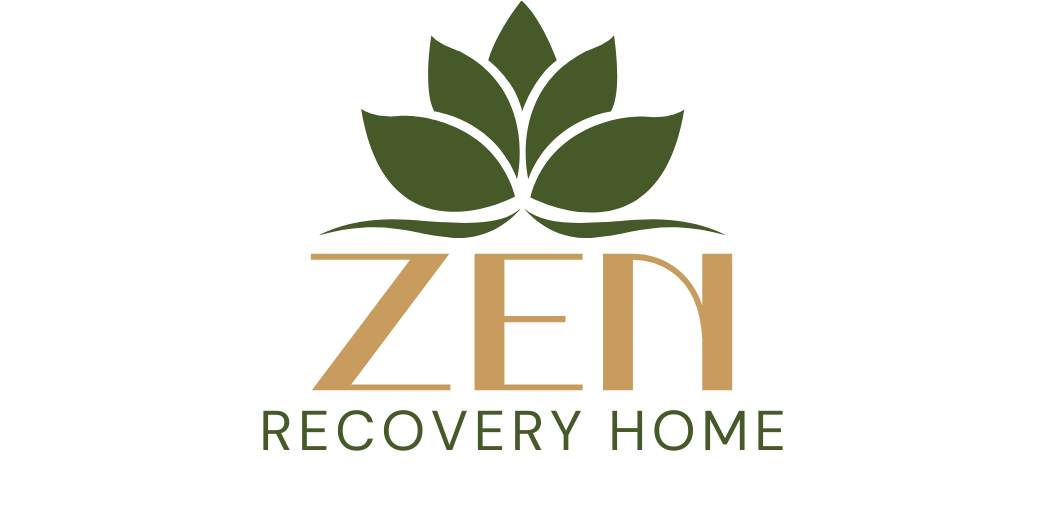What Is A Co-Occurring Disorder?
Why Mental Health & Addiction Often Go Hand-in-Hand
At Zen Recovery Home, we see it every day: people walk through our doors looking for help with substance use, but beneath the surface, there's often something deeper going on. Anxiety. Depression. Trauma. PTSD. These aren't just side stories to someone’s addiction—they're often tightly woven into the fabric of it.
This is what we call a co-occurring disorder (also known as a dual diagnosis): when someone is experiencing both a substance use disorder (SUD) and a mental health condition at the same time. It's incredibly common, and yet many people don’t even realize they’re struggling with both. Let’s break it down.
Understanding Co-Occurring Disorders
A co-occurring disorder simply means a person is dealing with both mental illness and addiction. The two conditions interact in complex ways. Sometimes a mental health condition can lead someone to self-medicate with drugs or alcohol. Other times, substance use can trigger or worsen mental health symptoms.
For example:
Someone with untreated anxiety may drink to calm their nerves.
A person living with depression may use stimulants to feel something again.
Someone with PTSD may turn to opioids or other substances to escape flashbacks or intrusive thoughts.
On the flip side, heavy drug or alcohol use can disrupt brain chemistry and increase the risk of developing mental health issues, especially in people already vulnerable due to genetics or trauma.
How Common Are Co-Occurring Disorders?
More common than you might think. According to the Substance Abuse and Mental Health Services Administration (SAMHSA):
9.2 million adults in the U.S. experienced both mental illness and a substance use disorder in 2021.
People with serious mental illness are more than twice as likely to have a substance use disorder compared to those without.
Despite how common it is, many people only receive treatment for one condition—not both.
That matters, because treating only one half of the issue often leads to relapse, frustration, and feeling stuck.
Why They Go Hand-in-Hand
Mental health and addiction are deeply connected. Here are a few reasons why:
1. Self-Medication
People often use substances to cope with emotional pain, stress, or unresolved trauma. Alcohol and drugs can numb, distract, or energize—but only temporarily.
2. Brain Chemistry
Both mental illness and substance use impact how the brain processes stress, pleasure, and decision-making. One can worsen the other in a biological feedback loop.
3. Shared Risk Factors
Genetics, trauma, early childhood experiences, and environmental stressors all contribute to both mental health issues and addiction. Many of the same root causes appear in both.
4. Stigma and Misdiagnosis
Mental health symptoms are often overlooked or mistaken for addiction-related behavior. And vice versa. This leads to misdiagnosis or missed opportunities for care.
Why Integrated Treatment Matters
You can't treat a co-occurring disorder by separating the mental health issue from the addiction. They feed into each other. That's why integrated treatment —where both conditions are treated at the same time, in the same place—is essential.
At Zen Recovery Home, we provide:
Trauma-informed therapy
Individual and group counseling
Support for depression, anxiety, PTSD, and more
Wellness practices like mindfulness, movement, and nutrition
Real conversations that help clients connect the dots between what they feel and how they cope
The goal is to build a recovery plan that addresses the whole person, not just the symptoms.
What Recovery Looks Like with a Dual Diagnosis
Recovery from a co-occurring disorder is absolutely possible—but it takes time, the right support, and often a team approach. Here’s what it may include:
Detox and stabilization in a safe environment
Mental health evaluation by licensed professionals
Medication support (if appropriate)
Ongoing therapy to process trauma and emotions
Skills-building for coping, relationships, and emotional regulation
Aftercare planning to stay connected and supported post-treatment
Most importantly, it takes compassion. Many people with co-occurring disorders have been misunderstood or judged for years. Healing starts when someone finally says, "We see the whole you—and you're not broken."
Final Thoughts
If you're struggling with addiction and suspect there might be something deeper going on, you're not alone. You don't have to have all the answers before asking for help.
At Zen Recovery Home, we believe recovery is more than stopping the substance. It's about uncovering what hurts and learning how to live differently. It's about healing the mind and body, together.
Whether you come to us or we help you find another path, we'll meet you with honesty, compassion, and no judgment.
You deserve care that treats all of you. And that journey can start today.

